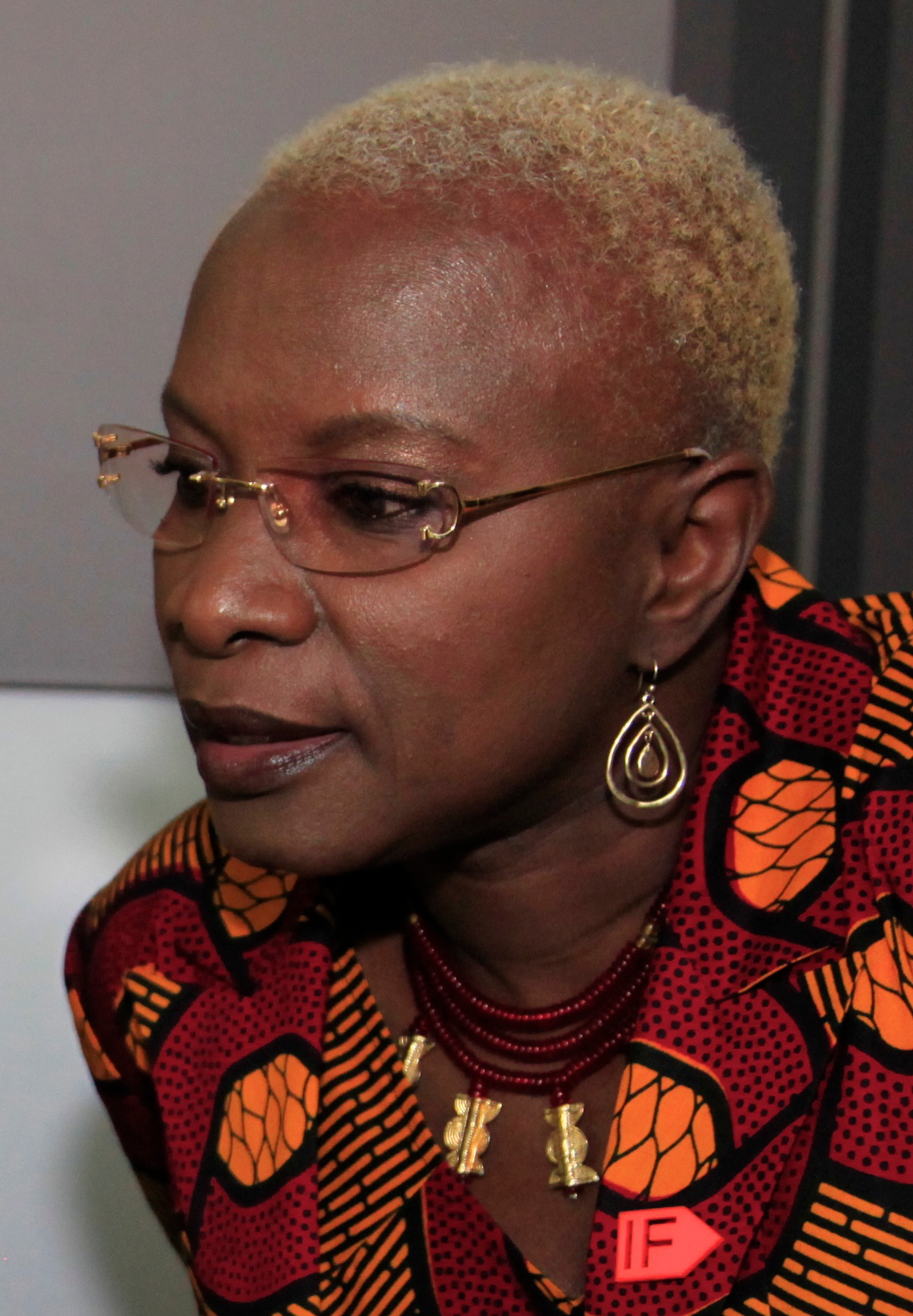A Beninese singer who is known for her Fon-language dance music, and percussive rhythms. After achieving international success with her 1991 album Logozo, West African singer Angelique kidjo was a household name in world music. She combines her multilingual fusions of Afrobeat and pop with jazz, reggae and other African traditions with collaborators from Philip Glass and Dr. John to Peter Gabriel, Alicia Keys and Branford Marsalis. Kidjo left her home in Benin to go to Paris and recorded several critically acclaimed albums with Island Records in the 1990s. She then embarked on an ambitious trilogy exploring African music’s influence across the Americas, including Brazilian, Latin, and gospel. Her career has been marked by her adventurous spirit and collaborative nature. A deep-rooted sense her Beninese heritage and West African heritage have remained a constant in all her recordings, including the star-studded Djin Djin 2007 and Eve 2014, which both earned her Grammy Awards. Kidjo is a veteran of major festivals, concert halls, clubs and other stages all over the globe. She has been recognized for her creativity and willingness to challenge the norm. She is fluent in English, French, Yoruba and Gen languages, as well as her personal language. This allows her to sing in many languages, often in the same song. Kidjo is also known for her advocacy. She was a UNICEF Goodwill Ambassador and campaigned for OXFAM. Kidjo, the daughter of an actress and dancer and a theatrical producer, was born in Ouidah in West Africa’s country of Benin. She was inspired by her mother’s passion for performing and made her first stage appearance with her mother’s theatre troupe. She was inspired by a variety of music from African artists such as Miriam Makeba and Fela Kuti to the rock, pop and soul of Santana, Jimi Hendrix and James Brown. By her 20th birthday, she was singing professionally. In 1981, she recorded Pretty, her debut album (produced by Ekambi Brilliant, a Cameroon-based singer). It produced the hit single “Ninive”. Despite the album’s popularity, she was able to tour more of West Africa. However, Benin’s oppressive political climate eventually forced her to move to Paris in 1983. Kidjo rose from backing singer to lead Jasper van’t Hof’s Euro African jazz/rock band Pili Pili. She recorded three albums with them before going on her own with Parakou, 1990’s Open Jazz label. Chris Blackwell signed Kidjo to Island Records in 1991 based on her solo album and her work with Pili Pili. Kidjo’s Island debut album, Logozo, was produced by Joe Galdo of Miami Sound Machine. It was a huge success that introduced her to a worldwide audience. The album, which featured a mix of pop and dance music and African beats, was released in 1991. It reached the top of Billboard’s World Music chart. Manu Dibango and Branford Marsalis also appeared on it. After several years of international tours and appearances at major festivals, Kidjo returned to Prince’s Paisley Park Studio in order to collaborate with David Z on her next album. Aye was released in 1994. It was co-produced by Will Mowat at London’s Soul to Soul. The hit song “Agolo” would be her first Grammy nomination. While modern technology and electronics played an integral role in her first three albums, Kidjo stayed true to her roots for Fifa 1996. Kidjo, along with a group of engineers, traveled to Benin in search of traditional musicians, singers and dancers. The recording sessions were held in Paris, London and Los Angeles. 1998’s Oremi was her next album. It was the first in a series of albums that explores the impact of African music on the Americas. Oremi, which incorporated elements of jazz, hip-hop and soul, focused on North America. It featured a reconstructed version of Jimi Hendrix’s “Voodoo Children (Slight Return),” and guest spots by Cassandra Wilson, R.
